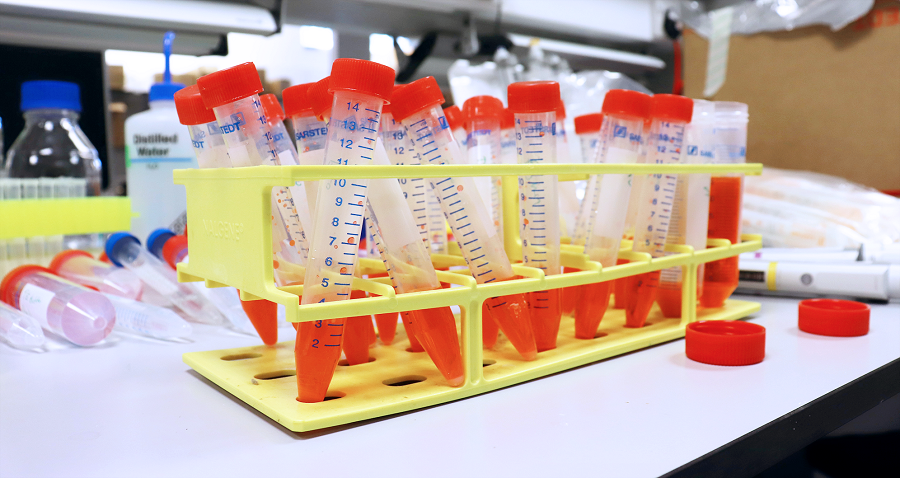Aug 14 2020
The manufacture of nylon could be completely transformed by the findings of a recent study, which shows that bacteria can synthesize an important chemical involved in the process, without the emission of hazardous greenhouse gases.

Image Credit: The Wallace Lab.
Researchers have formulated a sustainable technique to produce adipic acid—one of the most useful industrial chemicals in the world and a main component of nylon.
Over two million tons of the multipurpose fabric used to make parachutes, furniture, and clothing is produced worldwide annually, with a market value of approximately £5 billion.
Adipic acid’s industrial production is based on fossil fuels and generates huge amounts of nitrous oxide, which is a greenhouse gas that is 300 times stronger compared to carbon dioxide.
According to the research team, a sustainable production technique is the need of the hour to reduce the impact on the environment.
At the University of Edinburgh, researchers changed the genetic code of the common bacteria Escherichia coli in the laboratory.
The researchers grew the modified cells in liquid solutions comprising a naturally occurring chemical, known as guaiacol, which is the essential component of a compound that provides plants with their shape.
After an incubation period of 24 hours, the modified bacteria converted the guaiacol into adipic acid, without generating nitrous oxide.
The researchers report that it would be possible to scale up the eco-friendly method to synthesize adipic acid on an industrial level.
The study, which was reported in the ACS Synthetic Biology journal, was financially supported by the Carnegie Trust and UK Research and Innovation.
I am really excited by these results. It is the first time adipic acid has been made directly from guaiacol, which is one of the largest untapped renewable resources on the planet. This could entirely change how nylon is made.
Jack Suitor, Study Lead Author and PhD Student, School of Biological Sciences, University of Edinburgh
Suitor added that the team is constantly looking for new methods to use bacteria for the production of chemicals.
If bacteria can be programmed to help make nylon from plant waste—something that cannot be achieved using traditional chemical methods—we must ask ourselves what else they could do, and where the limits lie. We are all familiar with the use of microbes to ferment food and beer—now we can ferment materials and medicines. The possibilities of this approach to create a sustainable future are staggering.
Dr Stephen Wallace, Study Principal Investigator and UKRI Future Leaders Fellow, University of Edinburgh
Dr Wallace suggested that microbes could be useful in overcoming several other issues faced by the society.
Journal Reference
Suitor, J. T., et al. (2020) One-Pot Synthesis of Adipic Acid from Guaiacol in Escherichia coli. ACS Synthetic Biology. doi.org/10.1021/acssynbio.0c00254.